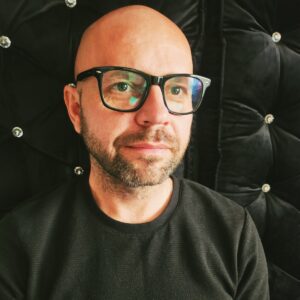When Sally Earthrowl, a geography teacher from Surrey, embarked on the X Trillion expedition in 2018, she did not expect to see plastic waste floating on the water like confetti in one of the most remote places on Earth. This shocking experience while sailing through the North Pacific Gyre, one of the ocean areas most polluted with plastic, convinced her of the seriousness of the situation and the need for action.
The X Trillion expedition, initiated by a group of environmentally aware women, aimed to document and understand the scale of pollution by plastic waste. The crew, consisting of 14 women, traveled 3,000 nautical miles from Hawaii to Vancouver, and then on to Seattle, dragging a fine-mesh net about 60 cm wide for a distance of one nautical mile. From this net, hundreds of pieces of microplastics were extracted, which, as Earthrowl described, were smaller than a little fingernail.
“It was not just a voyage, but a real lesson about humanity’s impact on the environment,” says Earthrowl. “The plastic we collected was everywhere – from large fragments to microscopic particles. It is alarming that we find such amounts of waste in such remote ocean regions.”
The initiative gained additional significance thanks to its documentation by Eleanor Church, the director of the film “X Trillion.” The film not only highlights the problem of microplastic pollution but also focuses on the toxic impact of these pollutants on women’s bodies.
“We wanted to show the true extent of the crisis affecting us all, but also highlight the special role that women can play in solving global problems,” explains Church. “During our three-week journey, we saw only three other ships, which shows how isolated and forgotten these areas are – yet they are not free from human influence.”
The voyage and the film X Trillion are intended to help raise awareness about the scale of plastic pollution and the need to develop effective strategies to reduce it. This message is particularly important in the face of global ecological challenges that the modern world is struggling with.
“We hope that our work will contribute to a change in thinking and encourage action towards a more sustainable future,” concludes Earthrowl. “This problem cannot be ignored, as its effects are visible at every turn, even in the most remote corners of our planet.”
Source: BBC
About the author

Grzegorz Bubak
My fascination with marine aquariums began over two decades ago when I stumbled upon an article about this topic in a magazine. Since then, the underwater world has become my obsession and passion, shaping my everyday life. I started my adventure with marine aquariums with soft corals, which were my first step into this fascinating world. Over time, captivated by the diversity and beauty of SPS corals, I decided to focus on their cultivation, which continues to fill me with constant wonder.
Thanks to my experience and passion for marine aquariums, I am ready to share my knowledge and expertise with other enthusiasts in this field. I am happy to be part of the Reef Pedia community, which serves as an invaluable source of information for all marine aquarium lovers.

